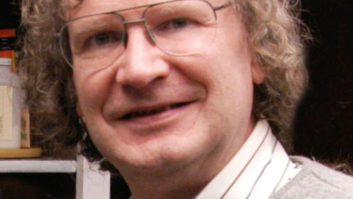Gary Frost’s book, which James O’Neal reviewed (“Armstrong Wasn’t the Only One,” Sept. 8), is indeed a fresh look at what most of us have considered old and established FM history.
Mr. Frost has certainly proved that Major Armstrong had inside knowledge of RCA’s privileged engineering information, which may very well have influenced the Major’s work in the final development of wideband FM.
There are many other interesting historical facts detailed in this book. I must admit that I was more than a little shaken when I read it. Now I can better understand why Jeanne Hammond, the Major’s niece, told me that he had wanted to write his own life story, just to clear up all of the many misconceptions concerning his legacy.
It’s not that he was trying to change history’s record; it’s just that others, including Lawrence Lessing, author of the Major’s biography “Man of High Fidelity,” were not getting things right. (As RW has noted elsewhere, Lawrence Lessing’s name in the article was wrongly referenced as Lansing Lamont.)
The Major himself was always quoted as saying, “It isn’t ignorance that causes the trouble in this world; it is the things that folks know that ain’t so.”
I’m an Armstrong historian; I’m also one of the curators at the Armstrong museum in Alpine, N.J., where the Major built the world’s first FM broadcast station.
Any truthful information concerning the Major’s involvement with the development of wideband FM should be known and explained. I feel that Gary Frost’s book does exactly that. I would recommend its reading to anyone interested in the history of FM broadcasting.
Steve Hemphill
Owner
Solid Electronics Laboratories
Lehighton, Pa.






